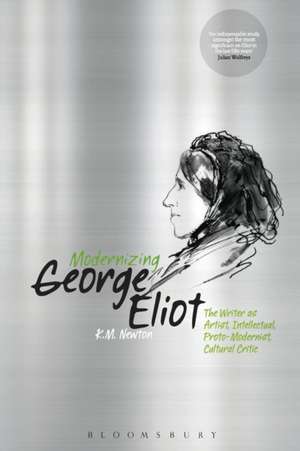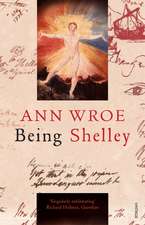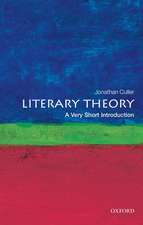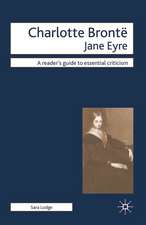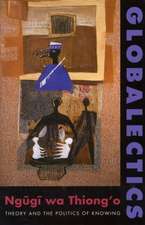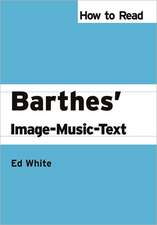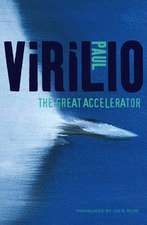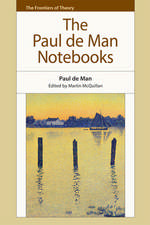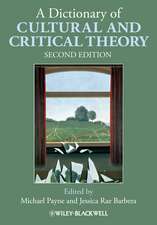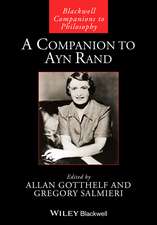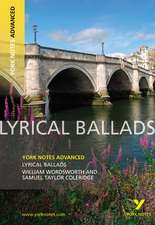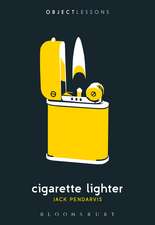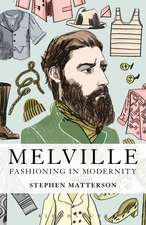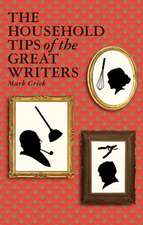Modernizing George Eliot: The Writer as Artist, Intellectual, Proto-Modernist, Cultural Critic
Autor K.M. Newtonen Limba Engleză Paperback – 23 mar 2016
| Toate formatele și edițiile | Preț | Express |
|---|---|---|
| Paperback (1) | 257.03 lei 6-8 săpt. | |
| Bloomsbury Publishing – 23 mar 2016 | 257.03 lei 6-8 săpt. | |
| Hardback (1) | 567.58 lei 6-8 săpt. | |
| Bloomsbury Publishing – 7 dec 2011 | 567.58 lei 6-8 săpt. |
Preț: 257.03 lei
Preț vechi: 330.95 lei
-22% Nou
Puncte Express: 386
Preț estimativ în valută:
49.18€ • 51.35$ • 40.61£
49.18€ • 51.35$ • 40.61£
Carte tipărită la comandă
Livrare economică 16-30 aprilie
Preluare comenzi: 021 569.72.76
Specificații
ISBN-13: 9781474275682
ISBN-10: 1474275680
Pagini: 240
Dimensiuni: 156 x 234 x 13 mm
Greutate: 0.34 kg
Ediția:NIPPOD
Editura: Bloomsbury Publishing
Colecția Bloomsbury Academic
Locul publicării:London, United Kingdom
ISBN-10: 1474275680
Pagini: 240
Dimensiuni: 156 x 234 x 13 mm
Greutate: 0.34 kg
Ediția:NIPPOD
Editura: Bloomsbury Publishing
Colecția Bloomsbury Academic
Locul publicării:London, United Kingdom
Caracteristici
Ken Newton is extremely well-published. His books include two monographs and a reader on the work of George Eliot, and a major monograph on Modern Literature and the Tragic as well as a number of student texts on literary theory
Notă biografică
Ken Newton is Emeritus Professor of English at the University of Dundee. He is the author or editor of ten books, most recently Modern Literature and the Tragic (2009) and George Eliot, Judaism and the Novels (2002).
Cuprins
Introduction CHAPTER 1: Eliot's critique of Darwinism CHAPTER 2: Eliot and the The ByronicCHAPTER 3: Eliot and Moral Philosophy: Kant and The Mill on The Floss CHAPTER 4: The Role of The Narrator in Eliot's Novels, Especially MiddlemarchCHAPTER 5: Prototypes and Symbolism in Middlemarch CHAPTER 6: Anticipation of Modernism in Eliot's CHAPTER 7: Realism and Romance: Allusion and Intertextuality in Daniel Deronda CHAPTER 8: Circumcision, Realism, and Irony in Daniel Deronda CHAPTER 9: Formal Experiments and Ideological Critique: Silas Marner and 'Victorian Values' CHAPTER 10: The Post-Colonial Critique of Eliot: Is Edward Said Right About Daniel Deronda? CHAPTER 11: Eliot and Racism: How Should one Read 'The Modern Hep! Hep! Hep!'? CHAPTER 12: Eliot and Derrida: and Elective Affinity CHAPTER 13: The Role of luck in The Art, Ethics, and Politics of Daniel Deronda
Recenzii
'K. M. Newton's Modernising George Eliot is a necessary, even urgent book. With style, wit, insight and forcefulness, Newton reads an Eliot for our times, as well as for her own. Demonstrating with panache, an acute eye for detail and historical significance, why Eliot should not be consigned to a literary heritage marked 'Victorian' (all those books we should read but never do), Newton's provocative and readable essays modernise George Eliot's novels in ways that should make all readers want to return to her publications, as if for a first time, with new eyes. An indispensable study, amongst the most significant on Eliot in the last fifty years, Modernising George Eliot should also modernise Eliot studies for quite some time to come'.
Modernizing George Eliot presents a George Eliot for our time, making a powerful case for her as a writer who anticipates modernism in her artistic sophistication and who is intellectually closer to Derrida than to Dickens in her understanding of the undecidable nature of political and ethical questions. Newton's readings of Daniel Deronda and Impressions of Theophrastus Such are particularly impressive in their attention to the subtlety of literary discourse and the complexity of George Eliot's thinking. A timely corrective to disparagement of her work on ideological grounds, these essays make an important contribution to our understanding of the novelist by demonstrating the radical nature of her intelligence.
Newton is the first to argue that [Eliot's] intellectual and ethical concerns, as well as her formal experimentation, anticipated twentieth-century literary Modernism. Newton's Eliot emerges as a self-conscious innovator who was ahead of her time. This is a major contribution to our understanding of Eliot's place in literary and intellectual history.
Newton attacks [the views of Eliot critics] with vigour, pointing out that though Eliot's narrators have an air of omniscience about them, they are explicitly represented as interpreters rather than all-seeking, all-understanding consciousnesses.
[T]his volume's key and welcome accomplishment is to reverse the terms of much critical thinking in relation to George Eliot over the last thirty years. The author emerges not as the outmodedly conservative and conventional writer of twentieth-century critical construction, but as an intellectual and literary mammoth of proportions.
The first three chapters are rich and inventive explorations of the pre-Eliot period.The surprise of chapter 1 lies in its attention to details of layout and organization that made the Westminster Review competitive with other major quarterlies and improved on runs under earlier editors.
Modernizing George Eliot presents a George Eliot for our time, making a powerful case for her as a writer who anticipates modernism in her artistic sophistication and who is intellectually closer to Derrida than to Dickens in her understanding of the undecidable nature of political and ethical questions. Newton's readings of Daniel Deronda and Impressions of Theophrastus Such are particularly impressive in their attention to the subtlety of literary discourse and the complexity of George Eliot's thinking. A timely corrective to disparagement of her work on ideological grounds, these essays make an important contribution to our understanding of the novelist by demonstrating the radical nature of her intelligence.
Newton is the first to argue that [Eliot's] intellectual and ethical concerns, as well as her formal experimentation, anticipated twentieth-century literary Modernism. Newton's Eliot emerges as a self-conscious innovator who was ahead of her time. This is a major contribution to our understanding of Eliot's place in literary and intellectual history.
Newton attacks [the views of Eliot critics] with vigour, pointing out that though Eliot's narrators have an air of omniscience about them, they are explicitly represented as interpreters rather than all-seeking, all-understanding consciousnesses.
[T]his volume's key and welcome accomplishment is to reverse the terms of much critical thinking in relation to George Eliot over the last thirty years. The author emerges not as the outmodedly conservative and conventional writer of twentieth-century critical construction, but as an intellectual and literary mammoth of proportions.
The first three chapters are rich and inventive explorations of the pre-Eliot period.The surprise of chapter 1 lies in its attention to details of layout and organization that made the Westminster Review competitive with other major quarterlies and improved on runs under earlier editors.
Descriere
Ken Newton argues that George Eliot's fiction is more innovative than previous critics have admitted, anticipating significant aspects of writing in the twentieth and twenty-first centuries.
